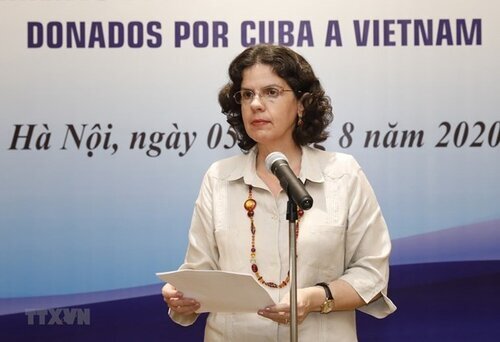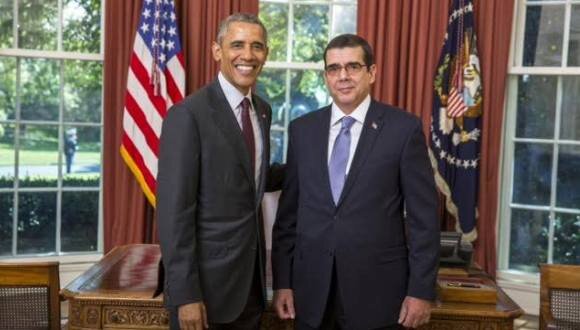Implementation Of Libertad Act Suggests At Present More Important To Spain Than To Leadership Of EC Or Members Of EU
Lawsuit Defendants In United States Waiting Ten Months For Authorization From EC
What Does Biden Administration Do If Cuba Says It Owes Nothing To Certified Claimants?
Perhaps, the correspondence level from Madrid to Brussels was due to protocol, the pandemic, and a requirement for member consensus, but if Title III and Title IV of the Cuban Liberty and Democratic Solidarity Act of 1996 (known as “Libertad Act”) remain so provocative, so injurious, so impactful for Spain-based companies- and potentially for United States-based companies, why not begin the public discourse in 2021 with the most senior government representatives?
A letter signed on 28 January 2021 by the government of Spain to the Brussels, Belgium-based European Commission (EC), the executive branch for the twenty-seven (27) member Brussels, Belgium-based European Union (EU), was not from the head of government, Prime Minister Pedro Sanchez, to President Ursula von de Leyen of the EC, but rather from a minister in Spain to the executive vice president of the EC. LINK To Media Release
An unintended message to the Biden Administration could be the Libertad Act is not yet so detrimental to the United States-EC/EU relationship as to reach the highest levels of EC leadership and EU-member government.
The thirty-two filed Libertad Act lawsuits will remain in the United States court system until judges rule, juries rule, or plaintiffs withdraw their lawsuits regardless of what Spain, the EC/EU, and Biden Administration may prefer. Another suspension of Title III of the Libertad Act does nothing to impact the existing lawsuits. New lawsuits may continue until there is another suspension of Title III of the Libertad Act. LINK To Libertad Act Lawsuit Statistics
The Trump Administration on 2 May 2019 made operational Title III of the Libertad Act. Title III authorizes lawsuits in United States District Courts against companies and individuals who are using a certified claim or non-certified claim where the owner of the certified claim or non-certified claim has not received compensation from the Republic of Cuba or from a third-party who is using (“trafficking”) the asset.
The last public correspondence from the EC to the United States was a two-page jointly-signed letter on 10 April 2019 from the High Representative/Vice President of the EC and Member of the EC for Trade to the United States Secretary of State with a copies to the Assistant to the President for National Security Affairs and the United States Trade Representative. LINK To Letter
The Trump Administration received expressions of displeasure from the EC/EU as an individual might receive the Legion d’Honneur from the government of France. The Biden Administration may be circumspect, but will need to be viewed as not abandoning the sanctity of property rights and the matter of the 5,913 certified claimants in the United States; members of the United States Congress will make certain of it.
If the Biden Administration is perceived as permitting EU members (and other countries) to escape accountability by a second suspension of Title III of the Libertad Act and further use of Title IV of the Libertad Act arguing that the statue is an ineffective means to resolve the certified claims and unnecessarily impacts bilateral relationships, then the Biden Administration need pivot to direct negotiations with the Republic of Cuba- and the EC/EU and other countries will need to assist the United States.
Title IV of the Libertad Act restricts entry into the United States by individuals who have connectivity to unresolved certified claims or non-certified claims. One Canada-based company and one Spain-based company are currently known to be subject to this provision based upon a certified claim and non-certified claim.
Thirty-two Libertad Act Title III lawsuits (certified claimants and non-certified claimants) have been filed in United States District Courts. Some remain before the original judge, some have been dismissed, some have been restructured, and others are at Courts of Appeals. Plaintiffs include 2nd, 9th, 31st, 38th, 73rd, 88th, 182nd, 183rd, 188th, and 3,954th largest certified claimants and other non-certified claimants.
There are 8,821 claims of which 5,913 awards valued at US$1,902,202,284.95 were certified by the United States Foreign Claims Settlement Commission (USFCSC) and have not been resolved for nearing sixty years (some assets were officially confiscated in the 1960’s, some in the 1970’s and some in the 1990’s). The USFCSC permitted simple interest (not compound interest) of 6% per annum (approximately US$114,132,137.10); with the approximate current value of the 5,913 certified claims US$8.8 billion.
Why have EU-based defendants in Libertad Act Title III lawsuits filed in the United States await nearing ten months for the EC to issue a response to “Application for Authorisation under Article 5 paragraph 2 of Council Regulation (EC) No 2271/96 of 22 November 1996.”
The distance between the request and the response may be interpreted as a lack of importance by the EC/EU to the Libertad Act despite an importance to at least one member of the EU, Spain.
However, one United States-based attorney offered the following: “I do not think a conclusion of uninterest, indifference or unnecessary delay by the EU is warranted in assessing its processing of, for example, the Iberostar [Group] application in the context of Title III [of the Libertad Act]. It is a complex question of law/extraterritoriality/sovereign foreign policy never before put to the EC. And it matters because any precedent will extend into future United States EC/EU interactions over the permissibility of United States extraterritorial laws aimed at Europe’s corporate sector. Consultation across the EU membership is required. This is time-consuming. The Pandemic has interfered with the EC/EU’s ability to decide delicate and important matters in physical meetings. The delay is not analogous to The White House asking the United States Department of State for its response to an application - here there’s not one United States Department of State, but twenty-seven.”
The Biden Administration has an opportunity for at least one quid pro quo or a series of quid pro quos with Spain, EC, EU, individual members of the EU and other countries.
The question for the Biden Administration will be how Spain, the EC, EU, individual members of the EU, and other countries will assist in obtaining resolution for the 5,913 certified claims against the Republic of Cuba absent the use of the Libertad Act.
Members of the United States Congress will expectantly insist upon direct and verifiable assistance from the EC, EU, individual members of the EU and other countries to resolve the issue of the certified claims.
Complicating decisions for the Biden Administration are Libertad Act Title III lawsuit District Court filings in Washington DC on behalf of the Republic of Cuba. Within the motions are statements supporting the expropriation of United States assets without compensation are references to should circumstances again be similar, the Republic of Cuba would again take the same decision- expropriate without compensation. Their position suggests- We took it, We will not give it back. We will not pay for it now. We will do it again. Move on.
How then does the Biden Administration engage with the Spain, EC, EU, individual members of the EU and other countries to obtain its support for assistance with obtaining a settlement for the certified claimants when the Republic of Cuba is maintains in court documents that no settlement is forthcoming?
For the Spain, EC, EU, individual members of the EU and other countries, how important is a second suspension of Title III of the Libertad Act? The first lasted from 1996 to 2019. Is the United States any nearer to resolving the issue of the 5,913 certified claims? No.
The Biden Administration will not suspend Title III of the Libertad Act to solely accommodate the interests of Spain, EC, EU, individual members of the EU and other countries. The Biden Administration will not suspend Title III of the Libertad Act and lessen the use of Title IV of the Libertad Act if doing so solely assists the Republic of Cuba with shoring-up its economy and attracting direct foreign investment and increasing the number of tourists visiting the 800-mile-long archipelago located ninety-three miles south of Key West, Florida.
For The Honorable Joseph Biden, President of the United States, who served in the United States Senate as Chairman of the Committee on the Judiciary (1987-1995) and Ranking Minority Member (1981-1987 and 1995-1997) may be loath to interrupt court cases in advance of their natural conclusion.
The 28 January 2021 letter from Spain to Brussels shared that suspension of the Libertad Act is “one of Spain’s main priorities…” and is “seriously affecting our trade and investment in Cuba, particularly regarding tourism, in which Spanish companies are market leaders.”
Large Spain-based companies are among defendants in Libertad Act Title III lawsuits and executives of at least one large Spain-based company have been subject to Title IV. These are not lawsuits against small companies without a global presence- most are publicly-held companies and have operations in the United States.
Bristol, United Kingdom-based Imperial Brands plc (2019 revenues approximately US$34 billion; member of EU when trafficking alleged)
Dusseldorf, Germany-based Trivago GmbH (2019 revenues approximately US$941 million)
Madrid, Spain-based Banco Bilbao Vizcaya Argentaria S.A. (2019 assets exceed US$800 billion)
Madrid, Spain-based NH Hotel Group S.A. (2019 revenues approximately US$1.9 billion)
Palma de Mallorca, Spain-based Melia Hotels International S.A. (2019 revenues approximately US$1.98 billion)
Paris, France-based BNP Paribas S.A. (2019 revenues approximately US$49 billion)
Palma de Mallorca, Spain-based Iberostar Group (2019 revenues approximately US$2.5 billion)
Paris, France-based Pernod Ricard (2019 revenues approximately US$10.4 billion)
Paris, France-based Société Générale S.A. (2019 revenues approximately US$25 billion)
London, Kingdom-based WWP plc (2019 revenues approximately US$14 billion; member of EU when trafficking alleged)
However, for now nearing ten months, EU-based defendants in Title III Libertad Act lawsuits filed in the United States await responses from the EC as to how the defendants should proceed relating to the lawsuits as the EU and members of the EU have in place regulations governing responses to the Libertad Act. The delay suggests a lack of urgency.
Mr. Hermenegildo, Altozano, attorney with Madrid, Spain-based Bird & Bird, informed the court that “On April 15, 2020, I filed an Application for Authorisation under Article 5 paragraph 2 of Council Regulation (EC) No 2271/96 of 22 November 1996 protecting against the effects of the extra-territorial application of legislation adopted by a third country, and actions based thereon or resulting therefrom, on behalf of the Spanish company Iberostar Hoteles y Apartamentos S.L.U. ("Iberostar").”
Excerpt From 24 April 2020 United States District Court Judge’s Order Granting Iberostar’s Motion To Stay: ”This requirement comes from a European Union blocking statute enacted to counteract the effects of the Helms-Burton Act, and Iberostar faces EUR 600,000 in sanctions for failure to first obtain authorization. (ECF No. 16 at ¶ 3.) Iberostar’s request for authorization has already been filed and is currently pending before the European Commission. (Id. at ¶ 18.) In the interest of international comity, this Court has determined that it is appropriate to stay this case pending the Iberostar’s request for authorization from the European Commission. The Court grants Iberostar’s motion for a stay (ECF No. 16), and the case is stayed until the European Union grants Iberostar’s request for authorization. Iberostar shall submit status reports on its request for authorization every 30 days. In the interim, the Court directs the Clerk to administratively close this case.”
On 23 September 2020, the [European] Commission replied that its “services are actively assessing [Iberostar’s] application.” The Commission highlighted that the “complexity of [Iberostar’s] request requires careful consideration, including extensive consultation of both the Commission services and Member States’ authorities.” Finally, the Commission confirmed that, “[d]espite the challenges presented by the current health situation, [they] do [their] utmost to ensure that a decision is taken in due course.”
“On December 20, 2020, the European Commission sent a new communication to Iberostar in which they confirmed the Commission has “been actively liaising to complete the required consultations of both the Commission Services and Member States’ authorities, as required.” The Commission “trust[s] any such assessments and investigations will shortly be completed and the authorisation process will pursue its course.” There have been no further developments since December 20, 2020. Defendant will keep this Court duly apprised of any further developments regarding the request for authorization from the European Commission. Filed this 19th day of January, 2021.”
European Commission
Brussels, Belgium
20 October 2020
“The EU’s Blocking Statute is designed to protect EU companies and persons from the extraterritorial application of foreign laws and regulations specified therein. Specifically, it covers certain U.S. sanctions vis-a-vis Iran and Cuba. The EU considers the extra-territorial application of unilateral coercive measures as contrary to international law. First, the Blocking Statute nullifies the effect in the EU of any foreign decision, including court rulings, giving effect to those sanctions. Second, it allows EU persons to recover damages for the losses they incurred because of those sanctions. Third, it prohibits EU operators from complying with such sanctions.
However, EU persons can request from the European Commission an authorisation to comply with such sanctions. If there is sufficient evidence that non-compliance would seriously damage their interests or those of the European Union, the European Commission can grant such authorisation.
As a general rule, EU companies summoned before US courts must obtain a prior authorisation from the European Commission before appearing in court. The authorisation process is confidential. Hence, the Commission cannot comment on any specific case. Suffice it to say that all decisions on authorisation applications are taken after careful deliberations – appreciating fully all arguments and evidence concerning the possible serious damage to the interests of the applicants or the EU. The Commission decides on such authorisations with the agreement of Member States, through the comitology procedure.”
Ministry of Industry, Trade and Tourism
Madrid, Spain
28 January 2021
Letter from Minister for Industry to Vice-President of European Commission
Reyes Maroto urges European Commission to call for Joe Biden to suspend Helms-Burton Act and customs duties on Spanish products
“The Minister for Industry, Trade and Tourism, Reyes Maroto, sent a letter to the [Executive] Vice-President of the European Commission, Valdis Dombrovskis, urging him to start talks with the new United States (US) Administration to call to suspend the Helms-Burton Act and the customs duties on Spanish products being applied by the US.
The minister urged the Vice-President of the European Commission to start talks with the new US Administration, since the Helms-Burton Act prejudices Spanish trade and investment in Cuba, particularly the tourism sector, and also to call for the suspension of customs duties on Spanish products being applied by the US, which prejudice the export of olive oil, wine and table olives, among others.
"The restoration of mutual trust is clearly one of the key goals of our future trade policy. We need to identify the main areas of immediate action and base ourselves on mutual needs and common goals that we share in our respective foreign economic and trade policies. The resolution of our disputes would send out a message of confidence to the private sector, which is calling for a negotiated solution between the two parties", stated the minister in her letter.
Reyes Maroto focused on four priorities in new trade relations between the EU and the US: the resolution of trade disputes; improved cooperation in areas of mutual interest for the future, fostering the highly necessary reform of the multilateral trade system and, finally, coordinating responses to avoid trade distortions while laying the foundations for resilient, fair and open international trade in the future.
Specifically, the minister referred in her letter to stepping up contacts for a negotiated, balanced and mutually beneficial solution to the civil aviation dispute (Airbus-Boeing), the customs duties on Spanish table olives, the tax on certain digital services and safeguard measures on steel and aluminium.
"Working on the suspension of the Helms-Burton Act is one of Spain's main priorities, to which end we call to step up diplomatic contacts underway between the European Commission and the United States to suspend this Act, which is seriously affecting our trade and investment in Cuba, particularly regarding tourism, in which Spanish companies are market leaders", concluded the minister. Non official translation”
LINK TO COMPLETE ANALYSIS IN PDF FORMAT






















